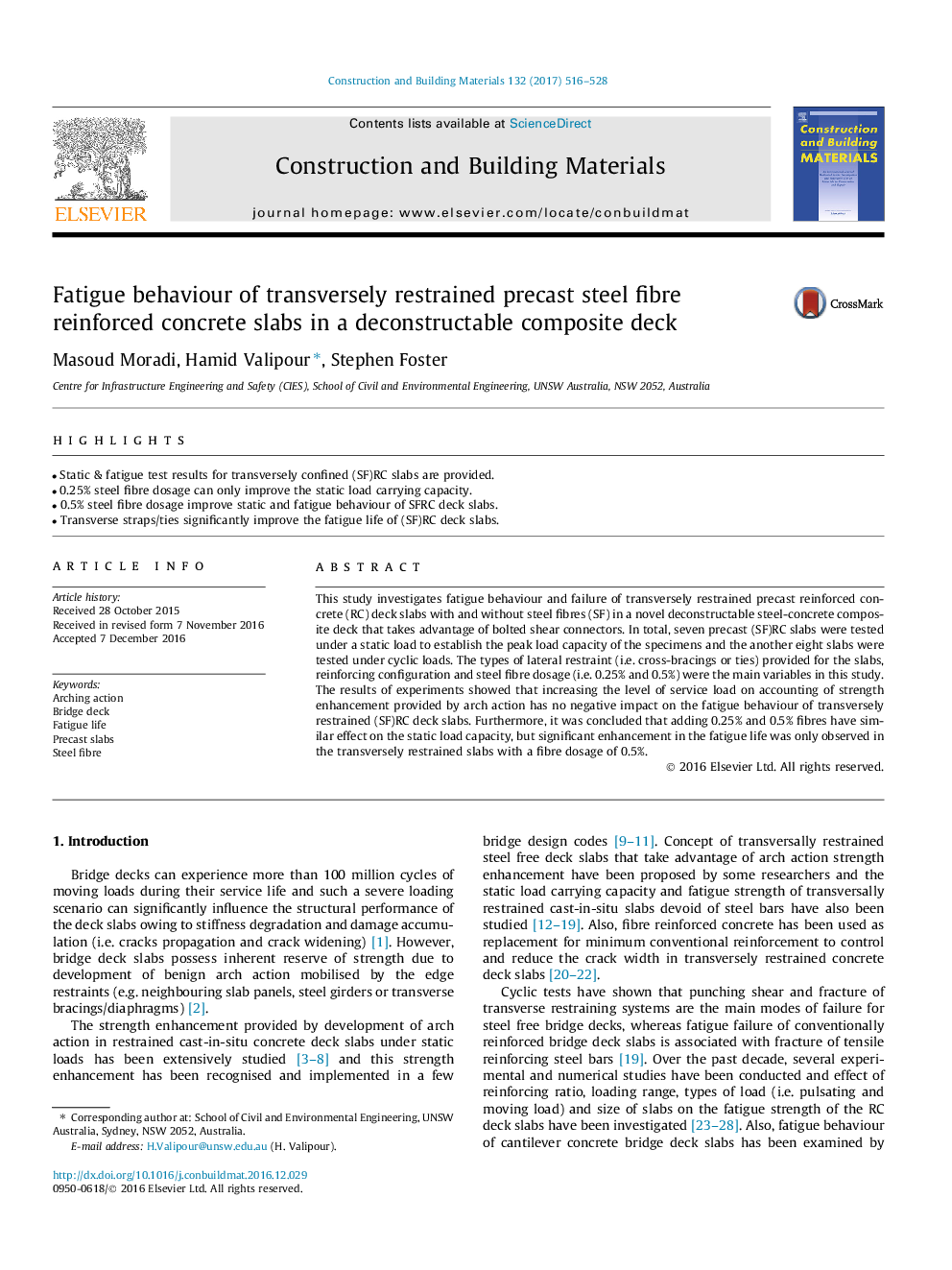| Article ID | Journal | Published Year | Pages | File Type |
|---|---|---|---|---|
| 4913853 | Construction and Building Materials | 2017 | 13 Pages |
Abstract
This study investigates fatigue behaviour and failure of transversely restrained precast reinforced concrete (RC) deck slabs with and without steel fibres (SF) in a novel deconstructable steel-concrete composite deck that takes advantage of bolted shear connectors. In total, seven precast (SF)RC slabs were tested under a static load to establish the peak load capacity of the specimens and the another eight slabs were tested under cyclic loads. The types of lateral restraint (i.e. cross-bracings or ties) provided for the slabs, reinforcing configuration and steel fibre dosage (i.e. 0.25% and 0.5%) were the main variables in this study. The results of experiments showed that increasing the level of service load on accounting of strength enhancement provided by arch action has no negative impact on the fatigue behaviour of transversely restrained (SF)RC deck slabs. Furthermore, it was concluded that adding 0.25% and 0.5% fibres have similar effect on the static load capacity, but significant enhancement in the fatigue life was only observed in the transversely restrained slabs with a fibre dosage of 0.5%.
Related Topics
Physical Sciences and Engineering
Engineering
Civil and Structural Engineering
Authors
Masoud Moradi, Hamid Valipour, Stephen Foster,
